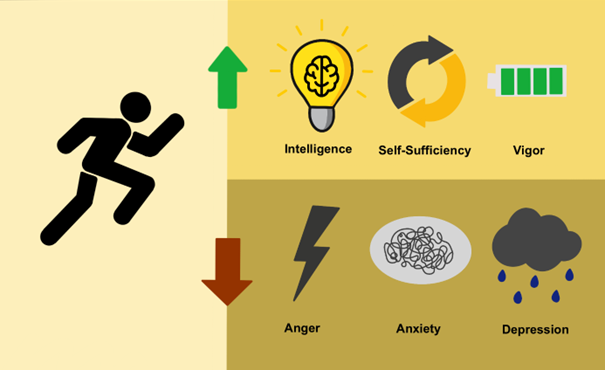Personality of marathon runners
a narrative review of recent findings
DOI:
https://doi.org/10.17179/excli2024-6907Keywords:
marathon, ultra-marathon, psychology, personality, motivation, mental healthAbstract
Participation in marathons has dramatically increased over the last few years. Marathon running has many proven beneficial effects, especially on cardiovascular health and fitness. Most research has focused on physiologic and pathophysiologic adaptations in connection with endurance exercise. Nevertheless, marathon running also has a major impact on psychological aspects and positively influences mental health, which has only recently attracted research interest. The present narrative review aimed to review the personality traits of marathon runners with an emphasis on recent literature. Marathon runners show a distinct personality and highly characteristic personality traits needed to successfully finish such a demanding race, i.e., a strong sense of vigor, self-sufficiency, and intelligence as well as low scores in anger, fatigue, tension, and depression. Furthermore, personality differences are detectable between runners of different sexes, ages, and performance level groups. This has significant clinical implications for athletes, coaches and competition organizers, as these groups show different patterns of personality traits. Future studies should focus on changes in cognition and mood states pre-, during, and post-endurance events, as well as during training periods. Large-scale studies comparing personality differences by sex, age, and performance are also important for better clinical guidance.

Downloads
Published
How to Cite
License
Copyright (c) 2024 Lorin Braschler, Mabliny Thuany, Claudio André Barbosa de Lira, Volker Scheer, Pantelis T. Nikolaidis, Katja Weiss, Beat Knechtle

This work is licensed under a Creative Commons Attribution 4.0 International License.
Authors who publish in this journal agree to the following terms:
- The authors keep the copyright and grant the journal the right of first publication under the terms of the Creative Commons Attribution license, CC BY 4.0. This licencse permits unrestricted use, distribution and reproduction in any medium, provided that the original work is properly cited.
- The use of general descriptive names, trade names, trademarks, and so forth in this publication, even if not specifically identified, does not imply that these names are not protected by the relevant laws and regulations.
- Because the advice and information in this journal are believed to be true and accurate at the time of publication, neither the authors, the editors, nor the publisher accept any legal responsibility for any errors or omissions presented in the publication. The publisher makes no guarantee, express or implied, with respect to the material contained herein.
- The authors can enter into additional contracts for the non-exclusive distribution of the journal's published version by citing the initial publication in this journal (e.g. publishing in an institutional repository or in a book).





